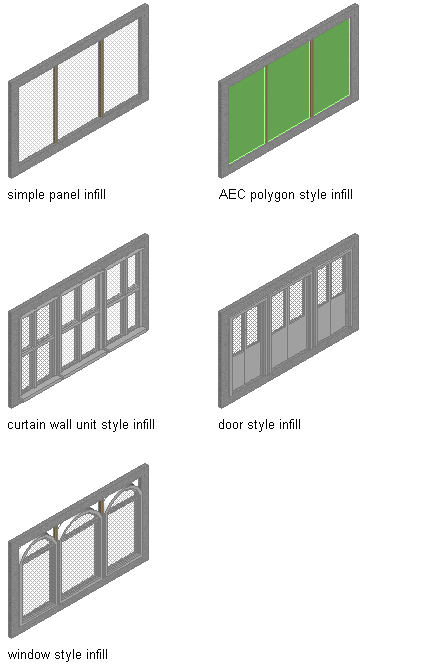An infill defines the contents of a door/window assembly cell. A door/window assembly cell can have the default simple panel or contain a nested grid, an AEC Polygon, curtain wall unit, door or window style. The object styles you use in infills must exist in the current drawing to be added to an infill definition. Panels typically represent glazing or other plain cladding, such as stone or concrete.

You can define as many infills as you need and then use cell assignments to specify the cells that use each infill. A default infill, which you can modify, is used for all unassigned cells.
Create infill definitions for a specific door/window assembly style. Those definitions can be assigned only to grid cells in door/window assemblies of that style.
Materials
Styles use the materials of the object style assigned to each panel. For example, if you specify an infill to use the Standard door style, the materials of that infill are those designated in the door style.
Simple panels need materials assigned in the door/window assembly style.

If you do not use materials to control the display properties of infills, you can specify their display properties in the door/window assembly style. The layer, color, linetype, and other display properties of the Default Infill are applied to all infills unless you create a custom display component for each infill definition. Then you can control the display of each infill definition independently.